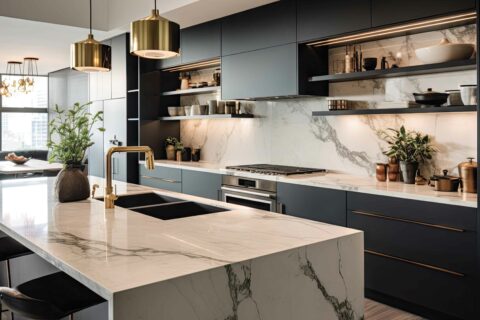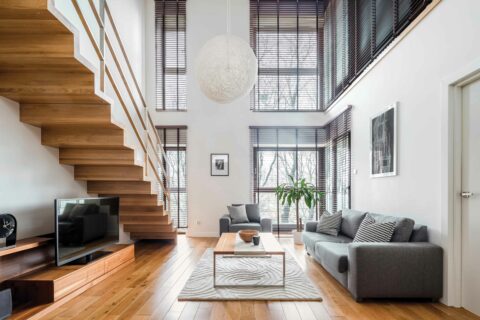June 23, 2021 • Buying
Fixed Vs Variable Mortgages: Do you know what’s best for you?
By Kate Barker with Shannon Hendrikse, Accredited Mortgage Professional and Owner of Canmore Broker Inc.
Mortgages are big commitments. With all the nuances going into financing a home, it can seem appealing to go with a fixed rate and have a solid payment plan. For some people, that may be the best option, but for others, exploring a variable rate mortgage may be the ticket to increased savings and paying for your home faster!
“There are a lot of misconceptions about variable being a lot scarier and riskier than it is,” says Shannon Hendrikse, Accredited Mortgage Professional and Owner of Canmore Broker Inc, “The perception is the variable rate is changing all the time. This perceived up and down means you can’t budget for it. In reality, it can move throughout your term, but not as frequently as people think.”
Your rate with a variable mortgage can only change when the Bank of Canada announces changes, and that only happens on pre-set announcement dates throughout the year. Historically, if the rate is going to increase, it only moves 0.25% at a time. It’s not the massive fluctuations people imagine when they think of variable rates. The BoC can’t make sweeping changes too quickly because of the vast effects it has on consumers and the economy across Canada.
Variable rates are set by banks and lenders. Your rate is set on a formula that doesn’t change throughout your term. What changes is the interest rate that these banks and lenders receive from the BoC, which can change your rate based on the formula you’ve established. For example, if your rate is Prime -1%, then you’ll always be paying 1% below Prime. If Prime is 2.45% in this scenario, then the interest on the principle of your mortgage is 1.45%. If Prime goes up by a quarter, then your overall rate goes up to 1.7%.
There are generally two types of variable mortgages: true variable and adjustable. True variable mortgages set your payments, so when Prime changes, your payment stays the same. “This system is great if rates are going down,” says Hendrikse, “If rates are going up and your payment doesn’t stay on track with that, however, you end up not paying much down on your principle and most money goes towards interest.” This can affect how long it takes to pay off your mortgage, and you may end up paying more in the long run.
Adjustable mortgages mean your payments change when Prime changes, so you’re making steady progress towards your goal of paying for your house. “This type of mortgage is more common in the broker space since non-bank lenders are structured this way,” says Hendrikse, “This can sound scary, but your payment change is never a dramatic amount. It’s usually around $40 per month.”
Fixed rates are set by individual banks and lending institutions, and they can change from one day to the next. Once you lock in, you’re set for 5 years, but you want to make sure you’re locking in at the best rate possible. Lenders love fixed rates because they get guaranteed income. Hendrikse warns that fixed rates come with certain restrictions and higher penalties if things go wrong. “If the fixed was super low, it would be great to take that, lock it in, set it and forget it. But when there’s a huge difference between the fixed and variable. You have to consider what’s the worst-case scenario, and how many increases in Prime could you sustain on a variable rate before you start losing some of those savings.”
Strategy tip: “You could consider going with a variable rate but pay the mortgage like you’re in a fixed rate. Essentially, this increases your payment and helps you pay the mortgage down faster. If this is done in the right way, it could set you a lot further ahead.” -Shannon Hendrikse
At the end of the day, most lenders allow you to convert to a fixed mortgage at any time without penalty. “When you’re in a variable mortgage, if you’re unsure, you can choose to lock it into a fixed rate at any time. Usually, you’ll get a slightly higher rate than the variable, but you’ll be secure until the end of the term.” So it’s all about playing the numbers and finding the best savings for your individual situation.
Questions to ask about your variable mortgage:
- Will my payment change if the rate changes?
- How much will it affect my payment if the rate goes up or down?
- If the payment doesn’t change, what does that do to my amortization schedule (the amount of time it takes to pay off the mortgage)?



